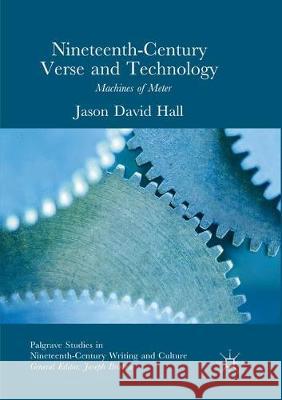Nineteenth-Century Verse and Technology: Machines of Meter » książka
topmenu
Nineteenth-Century Verse and Technology: Machines of Meter
ISBN-13: 9783319851686 / Angielski / Miękka / 2018 / 288 str.
Kategorie:
Kategorie BISAC:
Wydawca:
Palgrave MacMillan
Seria wydawnicza:
Język:
Angielski
ISBN-13:
9783319851686
Rok wydania:
2018
Wydanie:
Softcover Repri
Ilość stron:
288
Oprawa:
Miękka
Wolumenów:
01











